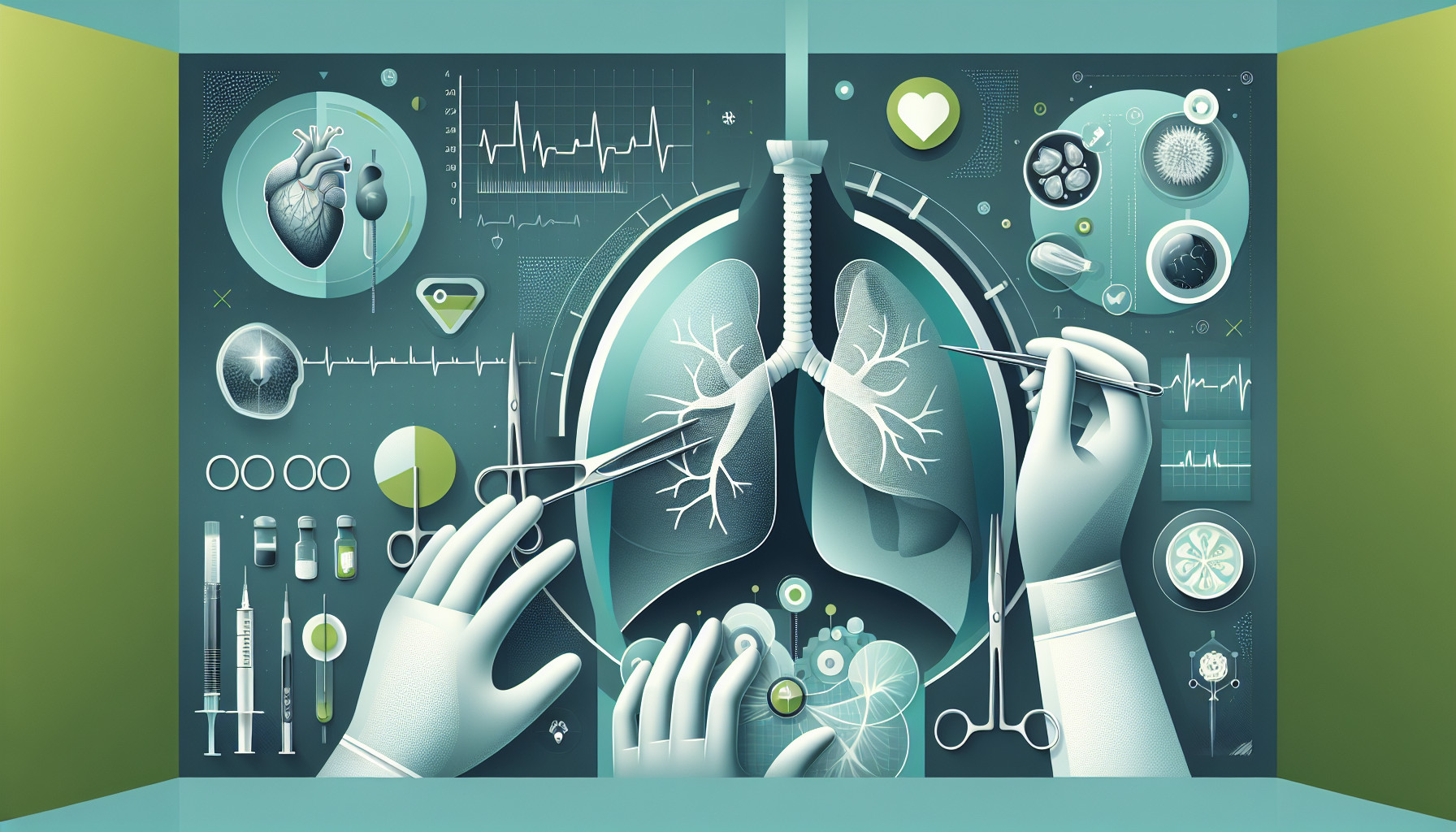Our Summary
Lung transplantation has made significant progress over the years. However, compared to other organ transplants, lung transplants still have a high rate of complications and death. There are several challenges in lung transplantation, including a shortage of donors, choosing the right patients for transplantation, problems with the transplanted lung not functioning properly, and long-term issues with the transplanted lung.
This paper discusses the current scenario, which is suitable for increasing the number of lung donors. It also talks about new technologies like ex vivo lung perfusion (a way to test and improve lungs outside the body before transplant) and bioengineered lungs (artificial lungs created in the lab).
The paper further discusses new ways of treating infected donors and the use of evidence-based medicine. All these factors and advancements will play a major role in shaping the future of lung transplantation. The researchers are hopeful and believe that the future of lung transplantation is promising.
FAQs
- What are some of the current challenges in the field of lung transplantation?
- What are the advancements and developments that are expected to shape the field of lung transplantation in the coming years?
- How are new technologies like ex vivo lung perfusion and bioengineered lungs influencing the field of lung transplantation?
Doctor’s Tip
One helpful tip a doctor might tell a patient about lung transplant is to closely follow the post-transplant care plan provided by their healthcare team. This may include taking medications as prescribed, attending regular check-ups, participating in pulmonary rehabilitation, and making necessary lifestyle changes to support lung health. By following these guidelines, patients can help ensure the success of their transplant and improve their overall quality of life.
Suitable For
Patients who are typically recommended for lung transplant are those who have end-stage lung disease and have exhausted all other treatment options. This includes patients with conditions such as chronic obstructive pulmonary disease (COPD), idiopathic pulmonary fibrosis, cystic fibrosis, pulmonary hypertension, and bronchiectasis. These patients often have severe symptoms, such as shortness of breath, fatigue, and a decreased quality of life, despite optimal medical management.
In addition to having end-stage lung disease, potential lung transplant candidates must also meet certain criteria to be considered for transplant. These criteria may include being medically stable enough to undergo surgery, having a good support system in place for post-transplant care, and being compliant with medical treatments and follow-up appointments.
It is important for lung transplant candidates to undergo a thorough evaluation by a multidisciplinary team of transplant specialists, including pulmonologists, surgeons, social workers, and psychologists, to determine if they are suitable candidates for transplant. This evaluation process helps to ensure that patients are both physically and emotionally prepared for the challenges of transplant surgery and post-transplant care.
Overall, lung transplant can be a life-saving treatment option for patients with end-stage lung disease, and careful patient selection is crucial to ensure successful outcomes.
Timeline
Before lung transplant:
- Diagnosis of end-stage lung disease and referral to a transplant center
- Evaluation by a multidisciplinary team of transplant specialists
- Placement on the transplant waiting list
- Waiting for a suitable donor match
After lung transplant:
- Surgery to remove diseased lungs and replace them with donor lungs
- Recovery in the hospital, including monitoring for complications such as rejection or infection
- Rehabilitation and physical therapy to regain strength and lung function
- Ongoing follow-up care to monitor for rejection, infection, and other complications
- Adherence to a strict medication regimen to prevent rejection
- Adjustment to life with a new set of lungs, including potential lifestyle changes and limitations.
What to Ask Your Doctor
- What are the risks and potential complications associated with a lung transplant?
- What is the success rate of lung transplants at your facility?
- How long is the average wait time for a donor lung?
- What criteria do you use to determine if I am a suitable candidate for a lung transplant?
- How will I be monitored and cared for post-transplant?
- What medications will I need to take after a lung transplant and what are the potential side effects?
- How often will I need to follow up with my transplant team after the surgery?
- What lifestyle changes will I need to make after a lung transplant?
- What support services are available for lung transplant recipients, such as counseling or support groups?
- What are the potential long-term outcomes and complications of a lung transplant?
Reference
Authors: Young KA, Dilling DF. Journal: Chest. 2019 Mar;155(3):465-473. doi: 10.1016/j.chest.2018.08.1036. Epub 2018 Aug 29. PMID: 30171860
